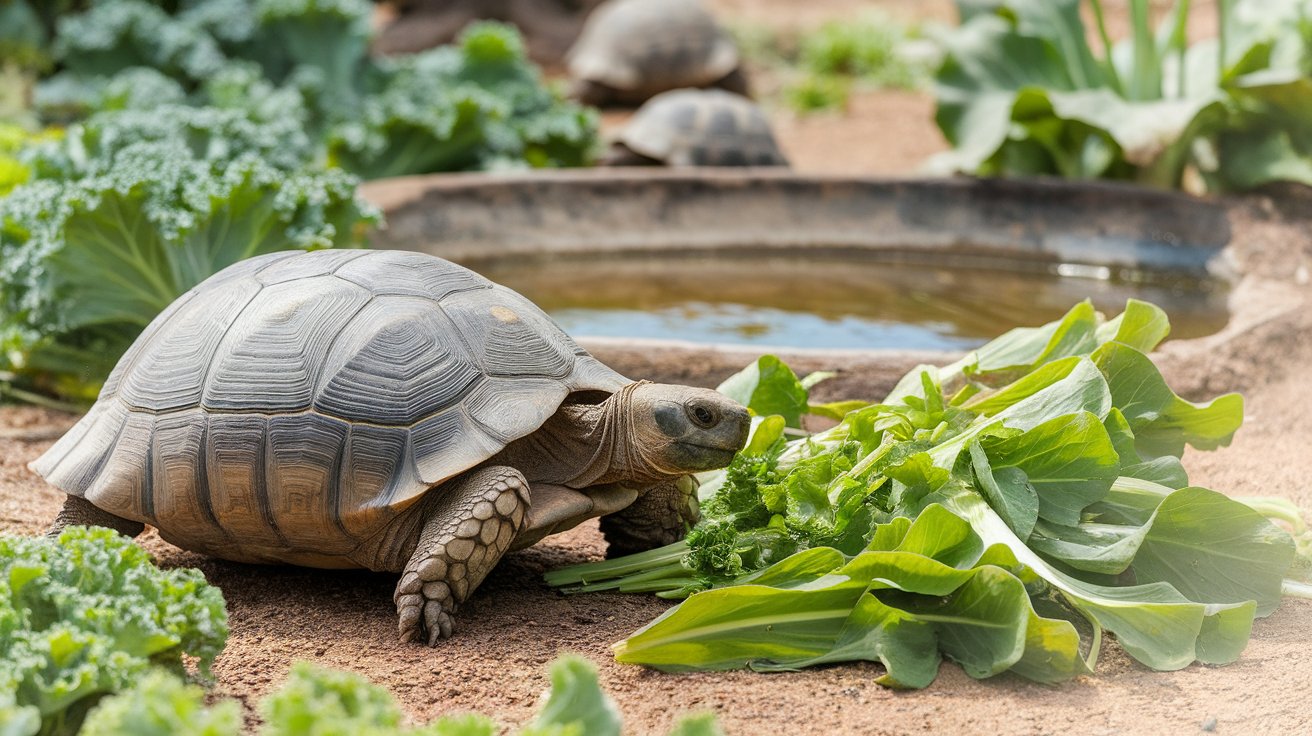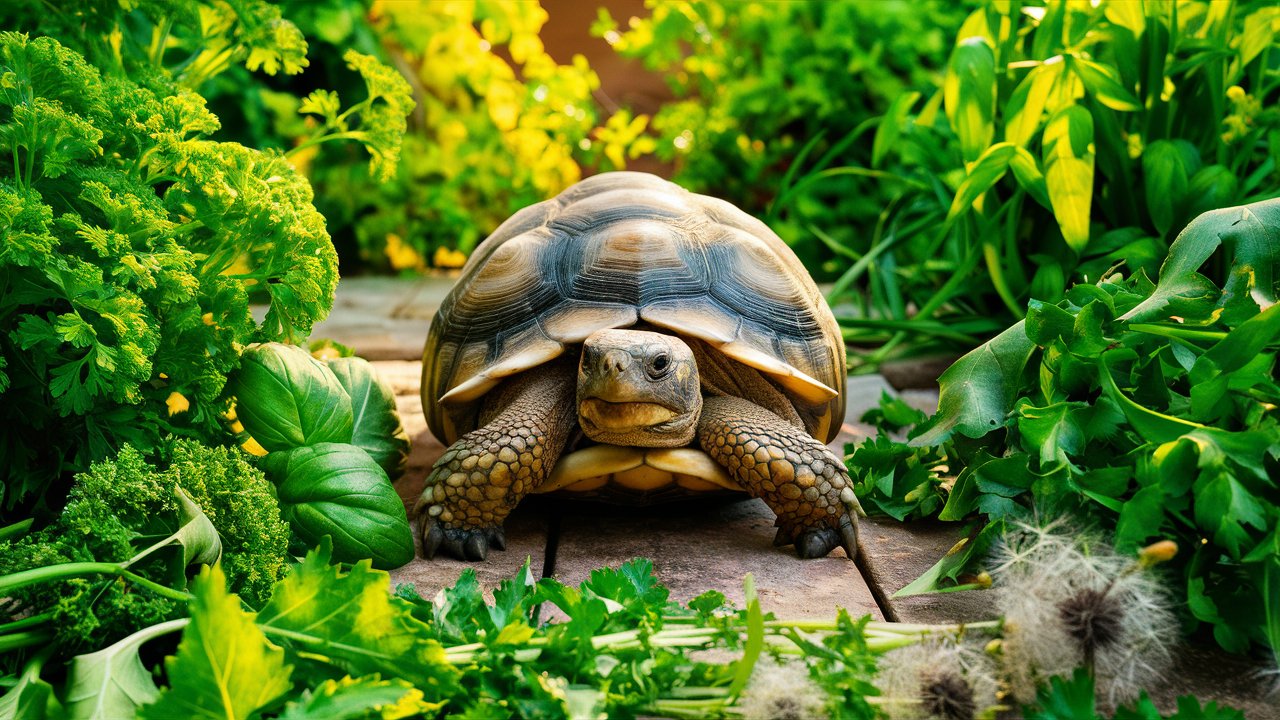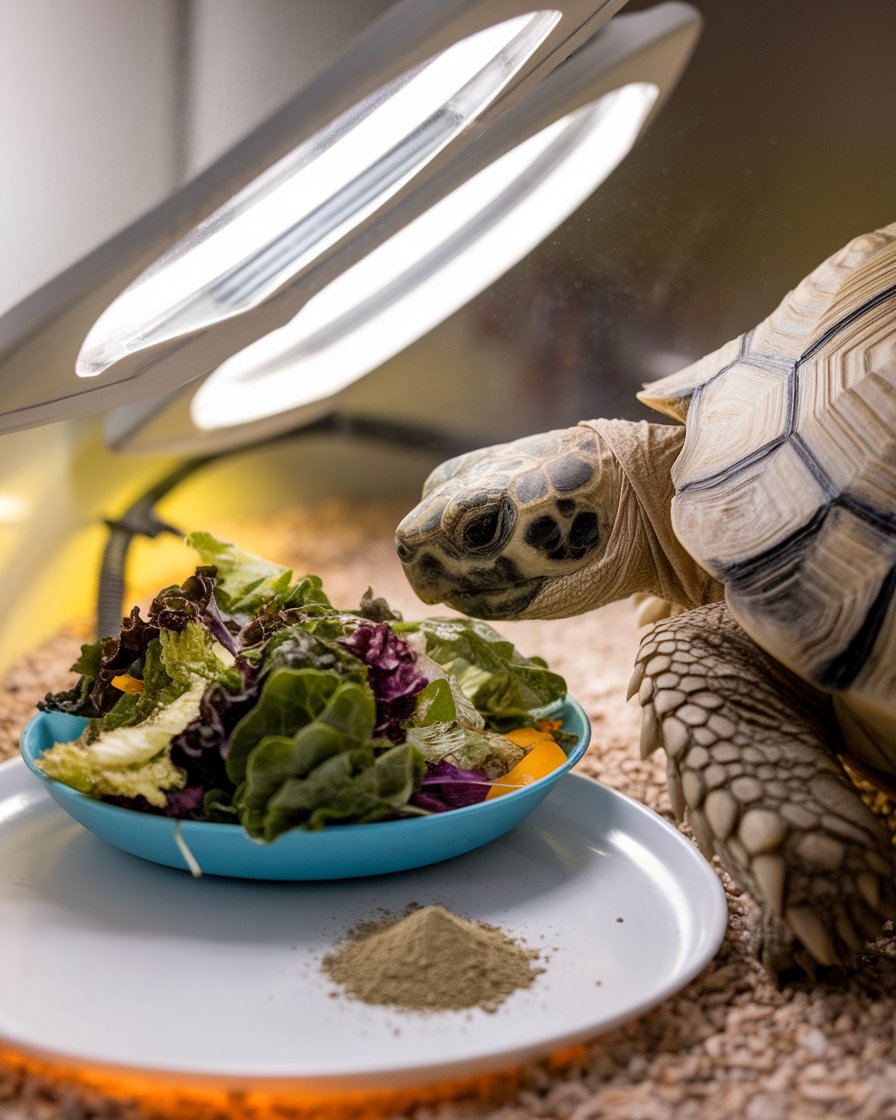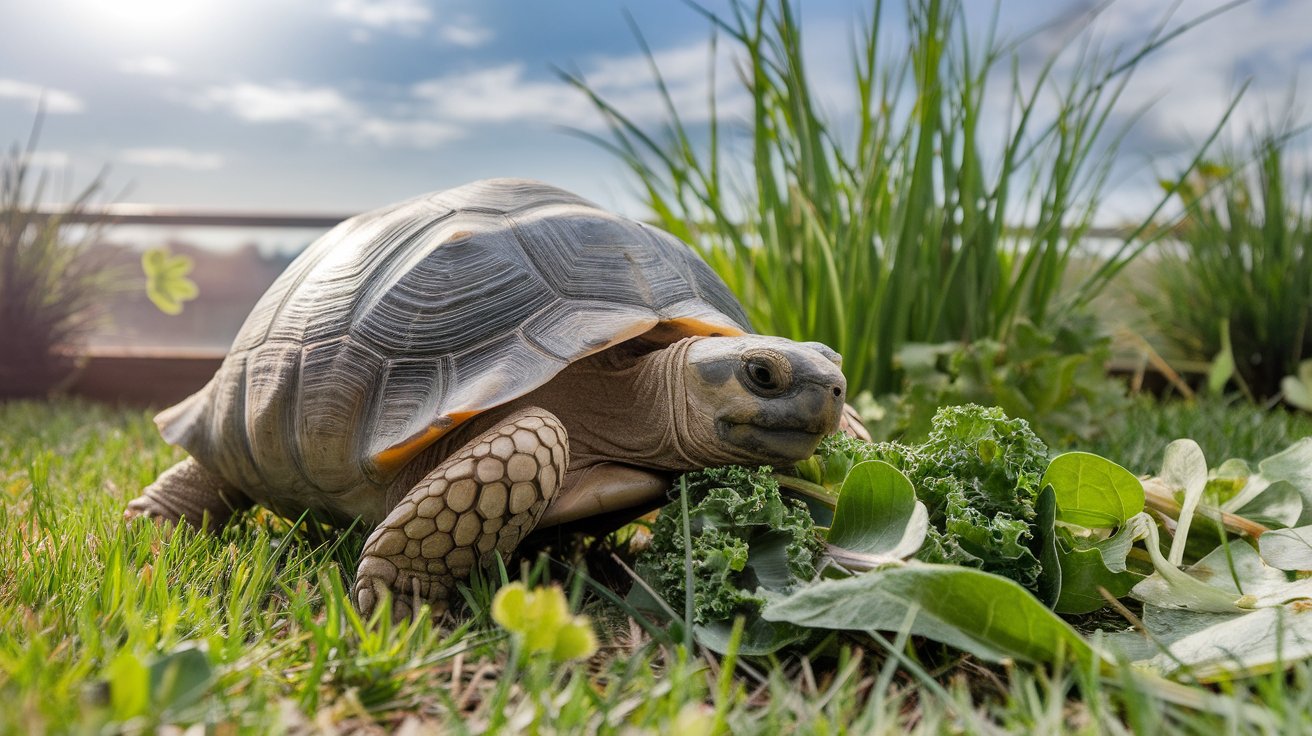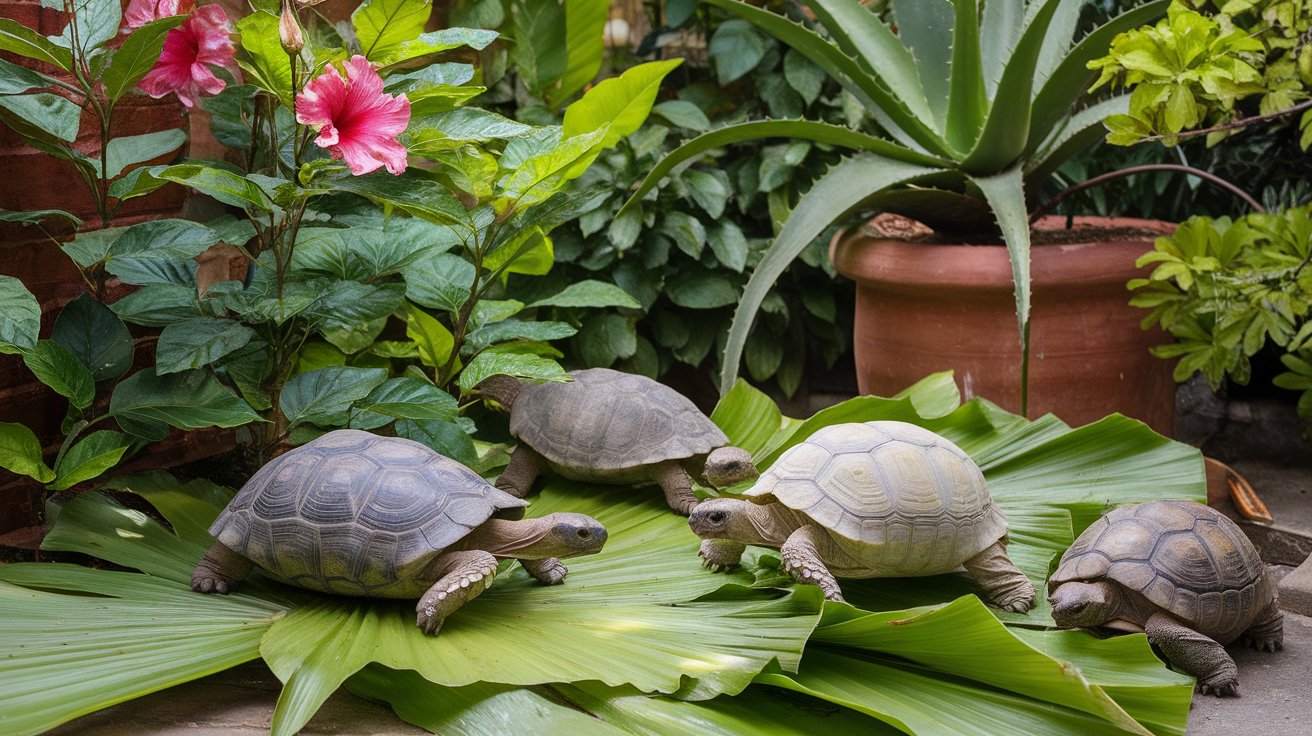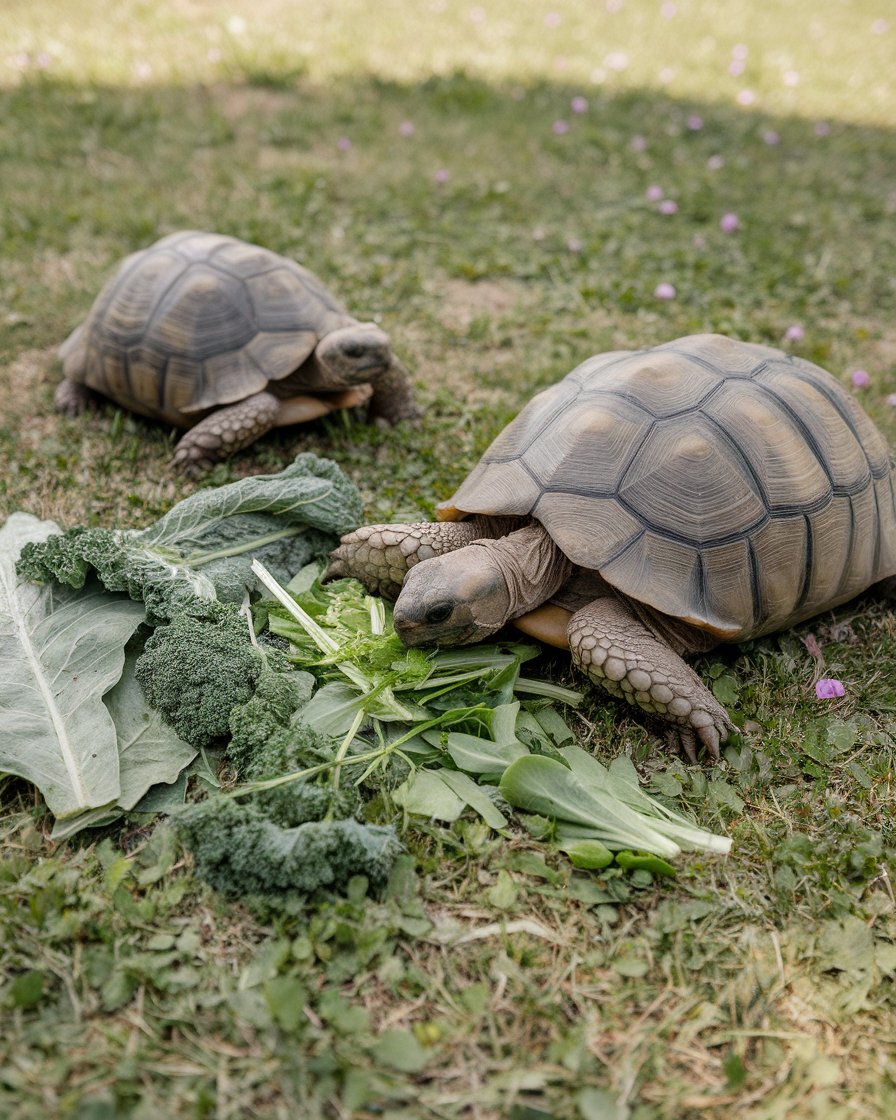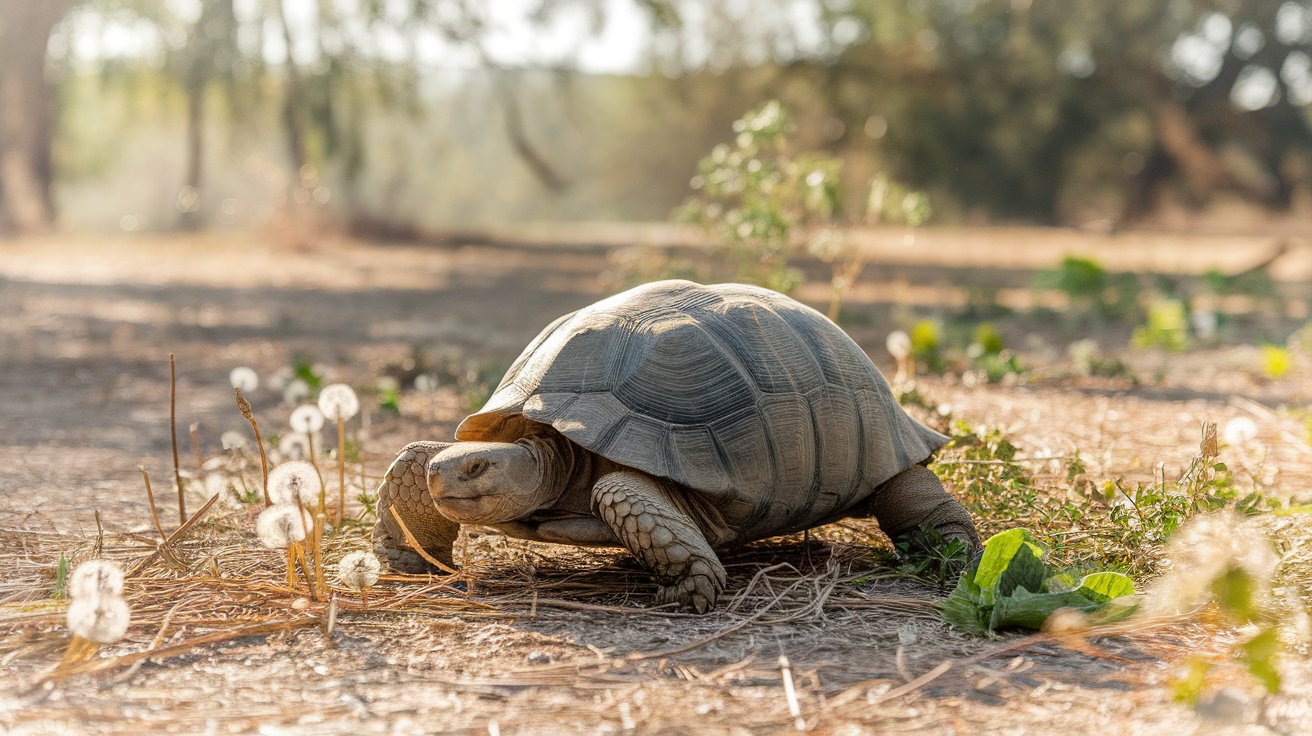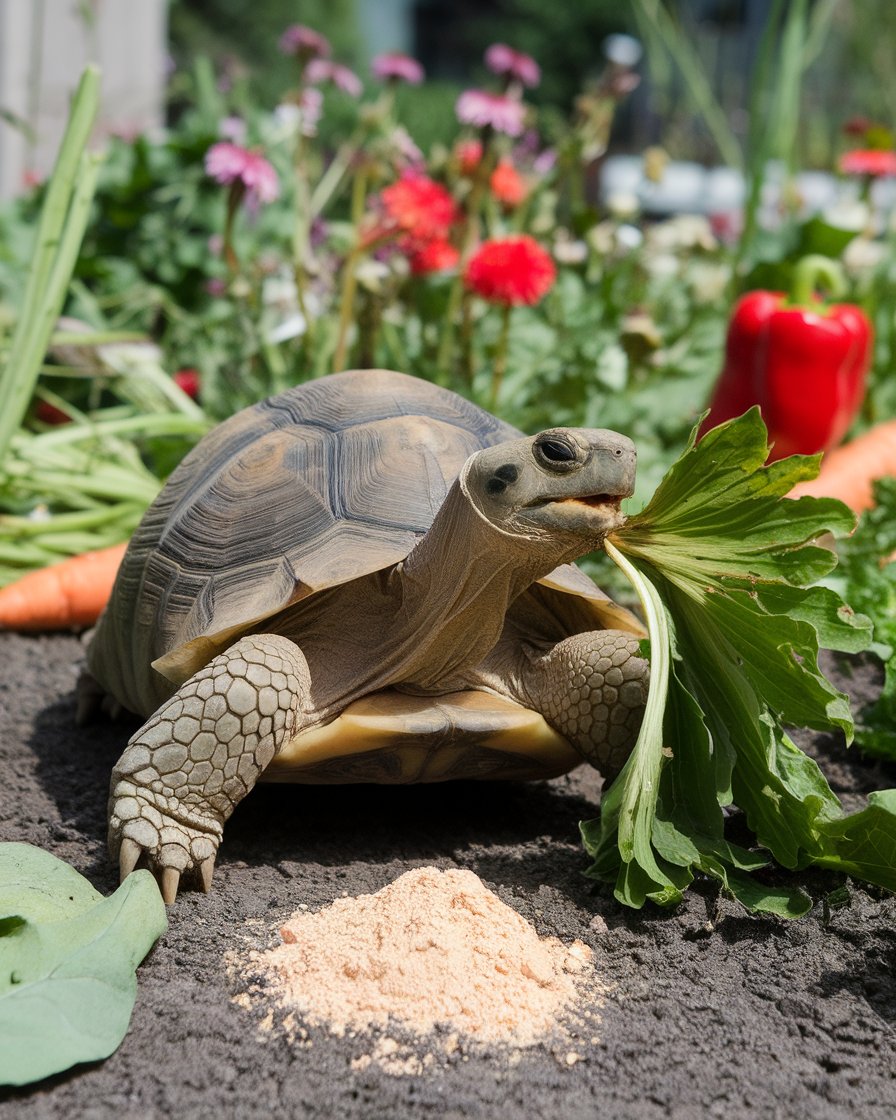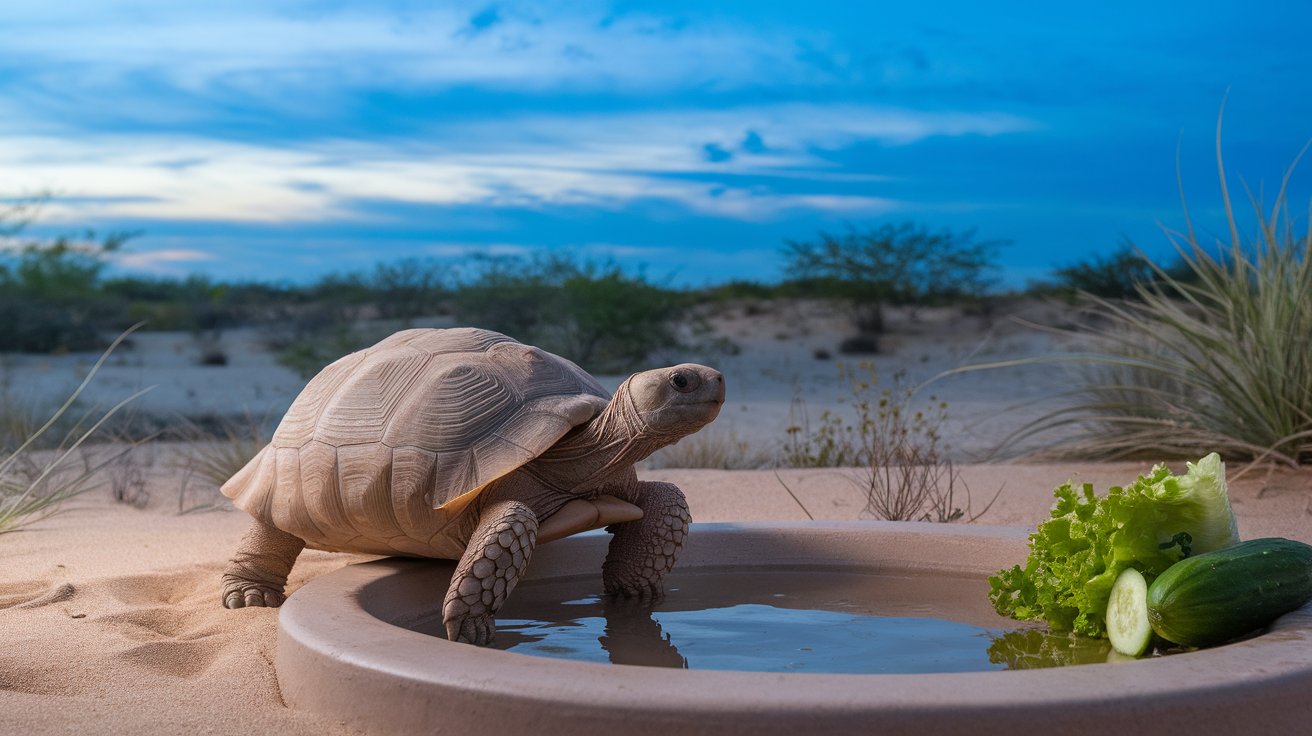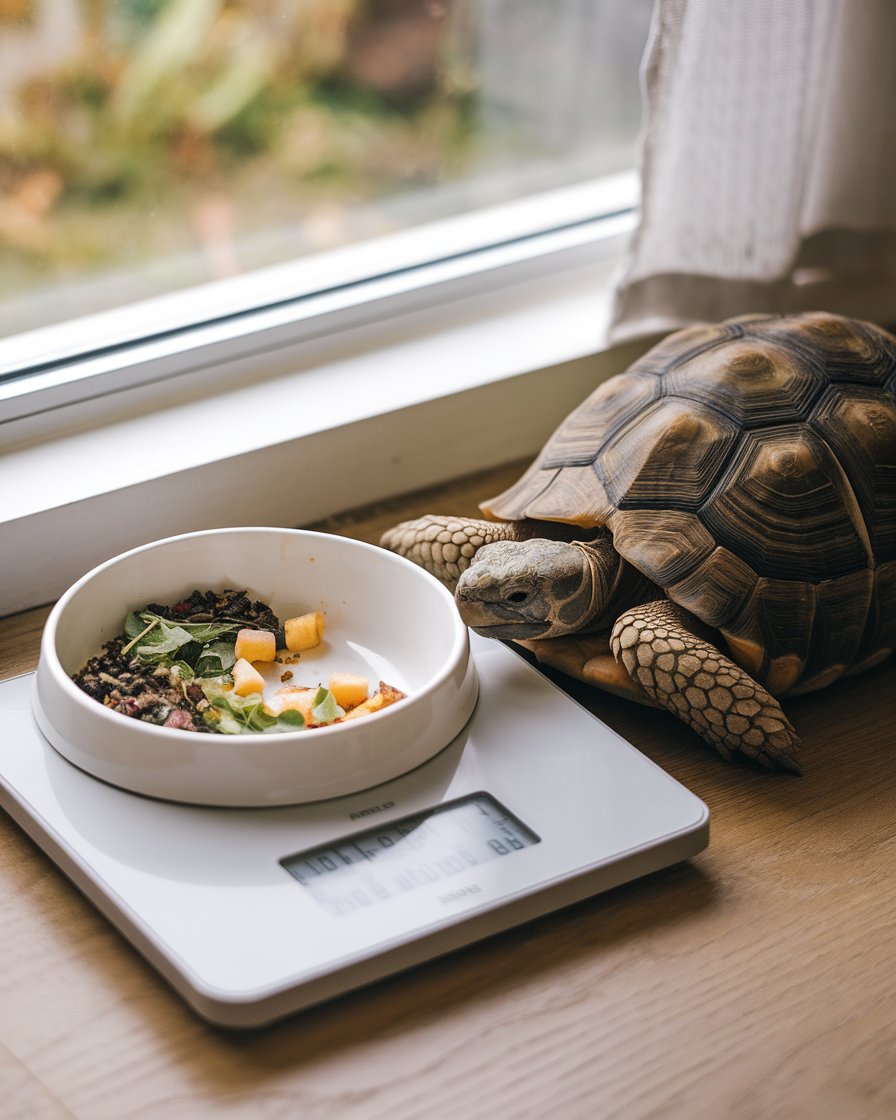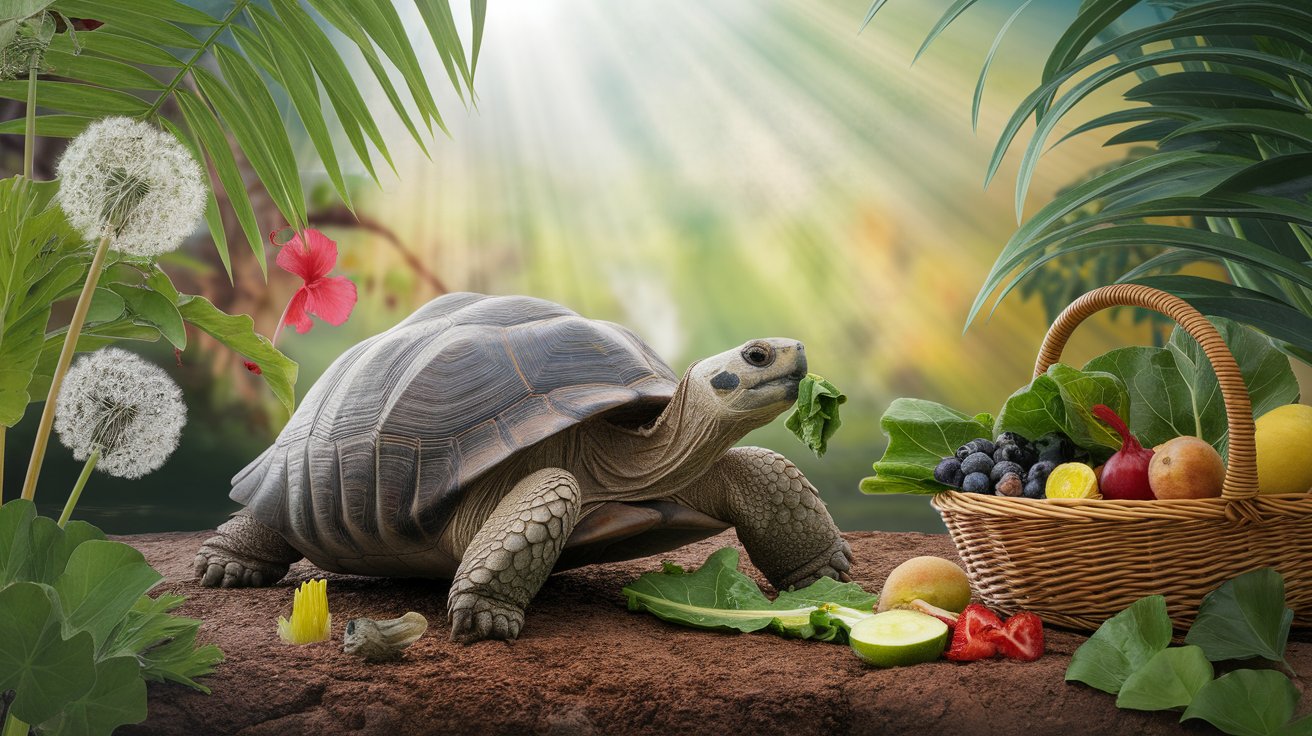Introduction
Feeding your tortoise the right diet is essential to maintaining its health and well-being. Tortoises are naturally herbivorous, which means they thrive on a plant-based diet. Leafy greens, grasses, and vegetables form the core of a proper tortoise diet. In the wild, tortoises graze throughout the day, naturally regulating their intake. Domesticated tortoises, however, rely on their owners to provide the correct food and portions. It’s important to supplement their diet with calcium-rich foods to support shell growth and overall health.
Understanding the dietary needs of tortoises plays a crucial role in their overall well-being. Each species of tortoise may have specific dietary requirements that must be met, whether through fresh food or commercially available tortoise foods. Consulting a reptile veterinarian can help owners ensure they are meeting their tortoise’s unique needs, such as proper feeding frequency and supplementation. Offering a well-rounded diet without overfeeding is key to preventing potential health issues.
Key Takeaways
Tortoises require a plant-based diet consisting of leafy greens, vegetables, and minimal fruits to maintain their health and well-being.
A feeding schedule should be based on a tortoise’s age and species, with young tortoises needing daily feedings and adults requiring less frequent meals.
Calcium and vitamin D3 are essential nutrients that support shell and bone health, and supplementation is recommended when necessary.
Overfeeding tortoises can lead to obesity, shell deformities, and metabolic issues, so portion control and monitoring are crucial.
Domesticated tortoises rely on their owners to provide balanced meals and avoid commercial foods that may not meet their dietary needs.
Consulting a reptile veterinarian can ensure that a tortoise’s specific dietary requirements are met, preventing long-term health problems.
How Much to Feed Tortoises
Feeding your tortoise the right amount and type of food is crucial for its overall health. Tortoises, being herbivores, primarily require a diet rich in leafy greens, such as kale and mustard greens, along with a variety of other vegetables. Their feeding habits should mimic what they would find in their natural habitat, grazing on weeds and other plants. Avoid feeding them commercial foods that may not meet their specific dietary needs. It’s also important to provide calcium supplements and ensure they have access to UVB light for proper shell and bone development. Regularly monitoring your tortoise’s eating habits and adjusting its food intake is key to preventing issues like metabolic bone disease and ensuring long-term health.
Tortoise Diet Frequency: How Much to Feed Your Tortoise
Understanding Natural Feeding Habits In the wild, tortoises graze on a variety of plants and leafy greens throughout the day, but domesticated tortoises do not require constant access to food. Their natural feeding behavior is to eat small portions frequently, which can be mimicked by offering food in smaller quantities. Ensuring that you don’t overfeed is essential, as tortoises are naturally slow metabolizers.
Adjusting Based on Age and Size The age and size of your tortoise should guide how often you feed them. Younger tortoises need daily feedings to support rapid growth, while adults generally require meals 5-6 times a week. Larger tortoises can manage larger portions, while smaller species, like the Russian tortoise, thrive on smaller servings.
Importance of a Balanced Diet A varied, nutrient-rich diet is critical for your tortoise’s health. Offer a mix of calcium-rich leafy greens, such as kale and mustard greens, while avoiding commercial foods that lack essential nutrients. Incorporating supplements like calcium and vitamin D3 supports strong shell development and overall well-being.
Monitoring Growth and Behavior Regularly assess your tortoise’s eating habits and overall health. If you notice sluggish behavior or weight gain, consider adjusting their feeding schedule. Feeding too much or too little can lead to health problems like obesity or malnutrition, both of which can impact your tortoise’s longevity.
Transitioning from Juvenile to Adult Feeding As your tortoise matures, their diet needs will change. Juveniles require frequent meals for growth, but adult tortoises can thrive on a more moderate feeding schedule. Transitioning from daily feedings to a routine of fewer meals per week helps maintain their natural feeding behavior and prevents overeating.
Consult a Reptile Veterinarian for Guidance Since dietary needs vary across tortoise species, it is important to consult a reptile veterinarian. They can help you fine-tune your tortoise’s feeding schedule based on factors like species, age, size, and overall health to ensure they thrive in a domesticated environment.
Adjusting Feeding Based on the Size of a Tortoise’s Shell
When determining how much to feed your tortoise, a general rule is to provide an amount of food proportional to the size of its shell. This guideline helps ensure you’re not overfeeding your pet, which can lead to health problems. Smaller tortoises, like the Russian tortoise, will need smaller portions, while larger species require more substantial meals. The variety of food you offer should also reflect their natural herbivorous diet, including calcium-rich foods like leafy greens and weeds. Remember, feeding too much or too little can affect their growth, so it’s important to adjust their diet as they mature.
Monitoring Growth Habits and Adjusting Food Amounts Accordingly
Keeping a close eye on your tortoise’s growth and behavior is essential to ensure its dietary needs are being met. If you notice changes in energy levels, such as lethargy, it could be a sign that their feeding schedule or food intake needs adjustment. Younger tortoises generally require more frequent feedings, while older ones may need less. Ensure that your tortoise’s diet includes a balance of essential nutrients to promote healthy shell and bone development. Consulting a reptile veterinarian can help you fine-tune their feeding routine based on their species and overall health, ensuring your tortoise thrives.
How Often Do Tortoises Eat
Tortoises, being herbivorous reptiles, have specific feeding schedules based on their age and species. For young tortoises, daily feeding is essential to support their rapid growth, while adult tortoises typically require less frequent meals. Feeding schedules should mimic their natural feeding patterns, offering a variety of leafy vegetables and small amounts of fruits sparingly. Providing your tortoise with a balanced diet that meets its specific dietary needs is crucial for shell growth and overall health. Tortoises also require regular access to fresh water, even if their diet consists mostly of moisture-rich vegetables. As each species may have slightly different needs, consulting a reptile veterinarian can help tailor your tortoise’s feeding schedule for optimal health.
Case Study: Feeding Frequency and Health of the Greek Tortoise
A study conducted by a reptile care organization in Europe observed the impact of feeding frequency on the health and growth of Greek tortoises (Testudo graeca). The tortoises were divided into two groups: one group was fed daily, while the other group was fed only five times a week. Both groups received the same variety of leafy greens, vegetables, and calcium supplements, ensuring a balanced diet.
The findings showed that the tortoises fed five times a week demonstrated more stable shell growth, maintained healthier body weight, and displayed fewer signs of overeating-related issues, such as lethargy or weight gain. The group fed daily experienced quicker growth rates but also exhibited minor shell deformities, likely due to overfeeding and less time to process their food. The study concluded that a feeding frequency of five times a week for adult Greek tortoises is optimal for maintaining long-term health.
Frequency of Feeding for Adult Tortoises
Adult tortoises have slower metabolisms compared to younger ones, which means they don’t need to eat daily. A feeding schedule of five times per week, typically in the morning, works well for most adult tortoises. This allows them to digest their meals properly and avoid overfeeding, which can lead to health complications. Offering a varied diet of leafy vegetables like mustard greens, along with occasional calcium supplements, ensures they meet their nutritional needs. Additionally, tortoises may benefit from days without food, allowing their digestive systems to rest. Always provide access to clean, fresh water to support overall well-being and proper digestion.
Transition from Daily Feeding for Young Tortoises to Occasional Feeding for Adults
In the early stages of life, young tortoises require daily feedings to support rapid growth and shell development. As they mature, however, their feeding needs change. Owners should gradually transition to less frequent feedings as their tortoise reaches full size, typically around five to seven years of age. This transition helps align with their natural feeding behavior in the wild, where food may not always be readily available. Adult tortoises can tolerate occasional fasting, which aids their digestive process. During this transition, monitoring their shell growth and overall health is essential to ensure that their dietary needs are still being met properly.
What Do Tortoises Eat
Tortoises primarily thrive on a plant-based diet, which mimics the natural food sources they would encounter in the wild. Their diet should consist of a variety of leafy greens, vegetables, and small amounts of fruits. Leafy greens such as dandelion leaves, mustard greens, and collard greens are excellent choices, as they provide essential nutrients like calcium and vitamin D3, which are critical for shell and bone health. A well-balanced diet is key to preventing common health issues, such as metabolic bone disease, and ensuring the tortoise’s overall well-being. Supplementing with calcium-rich foods or powders, along with exposure to natural sunlight or UVB light, further supports their health.
Emphasis on a Plant-Based Diet for Tortoises
A tortoise’s diet should be predominantly plant-based, as they are naturally herbivorous creatures. To ensure that your tortoise stays healthy, offer a variety of organic, pesticide-free vegetables and edible flowers. Dark, leafy greens like collard greens, kale, and dandelion leaves should make up the bulk of their diet, providing essential nutrients for growth and development. While root vegetables can be offered occasionally, they should not dominate their meals. Avoid giving fruits too frequently, as the sugars can upset their digestive systems. It’s crucial to maintain a balanced calcium to phosphorus ratio, which is important for their shell growth and bone development.
The Significance of Providing a Well-Rounded Diet with Necessary Nutrients
A varied diet not only keeps your tortoise engaged but also ensures it gets all the necessary nutrients. Around 85% of a tortoise’s diet should come from vegetables, with only 10% being fruits and 5% high-protein foods like certain insects or commercial tortoise foods. Tortoises need specific nutrients such as calcium, vitamin D3, and phosphorus to maintain strong shells and healthy bones. Supplementing their diet with vitamin and mineral powders is particularly beneficial for those kept indoors, as they may lack exposure to natural UVB light. Consulting a reptile veterinarian can help ensure that your tortoise’s specific dietary requirements are met to support long-term health.
“Animals are such agreeable friends – they ask no questions; they pass no criticisms.” – George Eliot
Can Your Tortoise Overeat
While tortoises are herbivorous and thrive on a diet of leafy greens, vegetables, and grasses, overeating can become a significant concern in domesticated settings. Unlike their wild counterparts, pet tortoises are often provided with more food than necessary, leading to potential health issues. It’s important for owners to establish a balanced diet for their tortoise, including the right portions, to avoid the risk of obesity. In the wild, tortoises graze throughout the day, naturally limiting their intake due to the scarcity of food. For a domesticated tortoise, it’s crucial to maintain a feeding schedule and offer an appropriate amount of food to match their species’ dietary needs.
Natural Discipline in Wild Tortoises vs. Potential Overeating in Domesticated Tortoises
Wild tortoises have developed natural feeding habits that help them maintain a healthy weight. They forage throughout the day, relying on available vegetation like grasses, leaves, and flowers. This constant but limited access to food keeps their diet balanced, and their slow metabolism allows them to regulate intake. Domesticated tortoises, however, face a different challenge. Owners, often out of love, may provide too much food or fail to recognize when their tortoise has eaten enough. Domesticated tortoises don’t have the same need to search for food, which can disrupt their natural eating patterns, leading to overeating and weight gain.
Health Issues Associated with Overeating and Excess Weight in Tortoises
Overfeeding your tortoise can lead to serious health concerns. Excessive weight not only strains their mobility but can also result in shell deformities, impacting their long-term quality of life. Additionally, obesity in tortoises is linked to metabolic disorders, such as fatty liver disease, and can weaken their immune system. To prevent these issues, it’s important to follow a proper feeding schedule and provide a well-balanced diet, including plenty of leafy greens and grasses. Consult a reptile veterinarian to ensure that your tortoise’s specific dietary needs are met, keeping them in optimal health. Regular monitoring of their weight and feeding habits can help prevent the negative effects of overeating.
Conclusion
Feeding your tortoise the correct diet is essential for its overall health and well-being. As herbivorous tortoises, their food should consist primarily of leafy greens, vegetables, and small amounts of fruits to ensure they eat a balanced diet. Calcium-rich foods are crucial for maintaining healthy shells, and fruits should be given sparingly to avoid digestive issues. Additionally, providing a shallow water dish is important to keep your tortoise hydrated. Consulting with a reptile veterinarian can help tailor a diet that meets the specific dietary needs of your tortoise, ensuring long-term health.
Understanding the dietary needs of tortoises is critical to their overall well-being. A correct diet not only supports their growth but also prevents health complications that may arise from overfeeding or providing foods that are toxic. Whether you care for box turtles or other pet tortoise breeds, it’s vital to monitor their diet, create a suitable environment, and ensure all dietary needs are met to promote optimal health and happiness.

